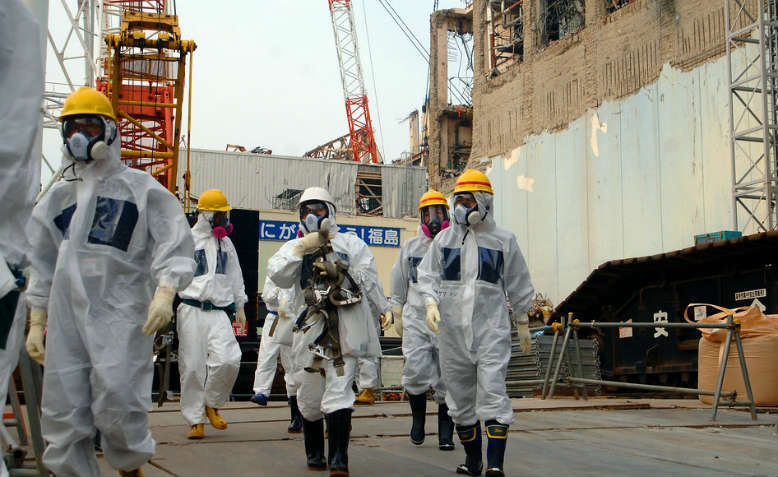 IAEA inspectors, Fukushima. Photo: Flickr/IAEA Imagebank
IAEA inspectors, Fukushima. Photo: Flickr/IAEA Imagebank
The Japanese government is planning to dump millions of tons of radioactive water into the ocean, reports Pete Morgan
“This is an appalling act of industrial vandalism” said Greenpeace as it was revealed this week that the Japanese government plans to dump millions of tons of radioactive water from the Fukushima nuclear plant wrecked by an earthquake in 2011 into the ocean.
There’s more than one million tons of contaminated water already stored at the plant, with 170 tons more added each day. The government says there will be no more capacity for tanks holding contaminated water by 2022. It is timely, therefore, that the first youth strike for climate of 2020 on Friday was on the theme of ocean pollution.
As clean-up of the 2011 Fukushima disaster continues, the Japanese government this week went on a PR offensive. It made its case on Monday to embassy officials from 23 countries that dumping contaminated water from the nuclear power plant into the ocean is the best course of action. However, Greenpeace has slammed the plan by the Japanese government saying that the decision was “driven by short-term cost-cutting”.
A Greenpeace study condemns the decision taken after the disaster to not develop technology that could remove radioactivity from the groundwater, which continues to seep into the basement levels of three of the six nuclear reactors at Fukushima. Shaun Burnie, a senior nuclear specialist for Greenpeace, has previously called on Japanese authorities to “commit to the only environmentally acceptable option for managing this water crisis, which is long-term storage and processing to remove radioactivity, including tritium.”
The decision by the government and the plant’s operator, the Tokyo Electric Power Company (Tepco), to avoid developing the relevant technology “was motivated by short-term cost-cutting, not protection of the Pacific Ocean environment and of the health and livelihoods of communities along the Fukushima coast”, said Greenpeace. “We have raised the water crisis with the UN International Maritime Organisation and firmly stand with local communities, especially fisheries, who are strongly opposed to any plans to discharge contaminated water into their fishing grounds.”
There has also been anger in some nearby countries, with environmental groups demonstrating in Seoul in November and Korea Radioactive Watch declaring that releasing the water “will threaten the waters of South Korea and other neighbouring nations”.

